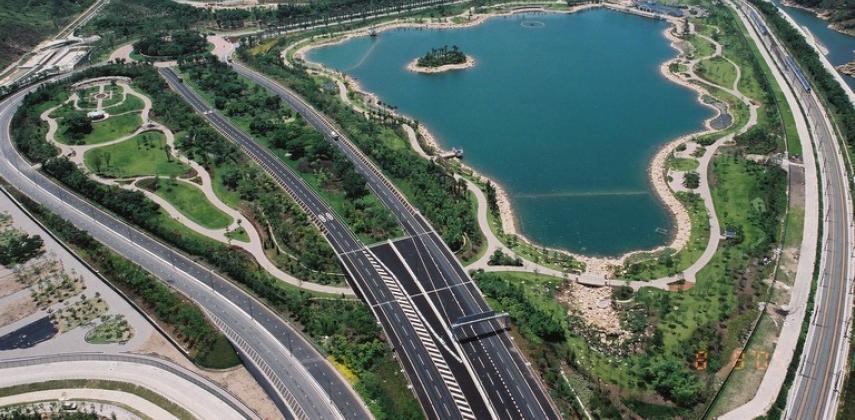Growing public aspirations on use of open space, coupled with a rise in government-led regeneration projects, should keep landscape architects occupied for the foreseeable future.
"A wide range of projects, including the government's Green Master Plan that covers all of Hong Kong's districts, means our staff are kept very busy," says Kathy Ng, head of the Development Bureau Greening and Landscape Office, which oversees landscape architects across several government departments.
As landscape architecture concepts assume an ever-greater role in government projects, Ng expects the need to increase sharply, pointing out that demand for landscape architects is outstripping supply, nowhere more so than in the public sector.
Not to be confused with architects - although the two professions overlap - Ng explains that government-employed landscape architects focus particularly on balancing the needs of people and the natural environment. Carrying out this mandate effectively requires teamwork skills, as they regularly need to collaborate with architects, engineers, planners and surveyors during the planning and design phases of projects.
The types of projects they undertake include everything from new developments and construction works, to historic preservation, land reclamation, and existing-site refurbishments.
Examples of government landscape architecture can be seen in the Central business district and Tsim Sha Tsui, where tree planting and greening works have taken place, says Ng.
Most large-scale projects take place outside prime urban areas. "The public park at Penny's Bay is a prime example of effective landscape architecture," Ng says, noting that aside from its aesthetic merits, the Penny's Bay lake is filled from natural water resources and is used to irrigate vegetation.
Landscape architects working with the Agriculture, Fisheries and Conservation Department regularly oversee tree-planting initiatives to prevent soil erosion in country parks. This involves a mix of office and on-site visits, to conduct impact assessments. "Landscape architects aim to provide optimal solutions and designs which are aesthetically satisfying, ecologically sound and functional," says Ng.
Students must complete a recognised degree such as Hong Kong University's (HKU) two-year, full-time master of landscape architecture programme. To meet demand, HKU has boosted its student intake from bi-annually to annually, and also offers a landscape architect undergraduate programme. Students must also do two years' on-the-job training, sit exams accredited by the Hong Kong Institute of Landscape Architects and finish recognised continuous professional development programmes.
Ng looks for "people with the knowledge and skills to ensure an effective implementation of an integrated approach to landscape architecture". This includes the ability to analyse natural elements such as soil, slopes, drainage passages and vegetation.
As the work covers a wide range of topics, landscape architects need a grasp of horticulture, ecology, history, design, computer graphics, law and professional practice. They are also required to have good oral and writing skills.
Armed with a degree in geology and a keen interest in both natural and man-made environments, Chow Yun-tong, a landscape architect with the Development Bureau Greening and Landscape Office, says long-term career prospects and being able to effect communal change were two factors that drew him to landscape architecture. "While this is a fairly new profession, it is a career where you can make a visible difference," says Chow, the first local graduate to complete the HKU master of landscape architecture degree in 1993.
In addition to carrying out local and international greening research, Chow also works with colleagues to formulate best practice policies.
"One of our latest initiatives is promoting vertical or skylight greening, involving rooftops. We hope to raise public and industry awareness though our new awards programme," he says.


